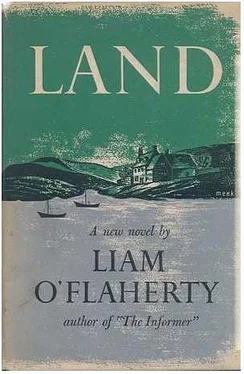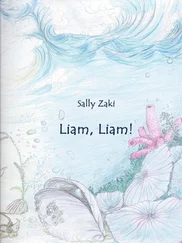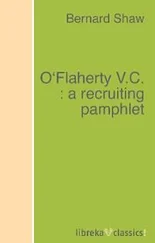Liam O'Flaherty - Land
Здесь есть возможность читать онлайн «Liam O'Flaherty - Land» весь текст электронной книги совершенно бесплатно (целиком полную версию без сокращений). В некоторых случаях можно слушать аудио, скачать через торрент в формате fb2 и присутствует краткое содержание. Город: London, Год выпуска: 2011, ISBN: 2011, Издательство: Bloomsbury Publishing, Жанр: Проза, на английском языке. Описание произведения, (предисловие) а так же отзывы посетителей доступны на портале библиотеки ЛибКат.
- Название:Land
- Автор:
- Издательство:Bloomsbury Publishing
- Жанр:
- Год:2011
- Город:London
- ISBN:9781448203888
- Рейтинг книги:3 / 5. Голосов: 1
-
Избранное:Добавить в избранное
- Отзывы:
-
Ваша оценка:
- 60
- 1
- 2
- 3
- 4
- 5
Land: краткое содержание, описание и аннотация
Предлагаем к чтению аннотацию, описание, краткое содержание или предисловие (зависит от того, что написал сам автор книги «Land»). Если вы не нашли необходимую информацию о книге — напишите в комментариях, мы постараемся отыскать её.
Land — читать онлайн бесплатно полную книгу (весь текст) целиком
Ниже представлен текст книги, разбитый по страницам. Система сохранения места последней прочитанной страницы, позволяет с удобством читать онлайн бесплатно книгу «Land», без необходимости каждый раз заново искать на чём Вы остановились. Поставьте закладку, и сможете в любой момент перейти на страницу, на которой закончили чтение.
Интервал:
Закладка:
Frank McMahon, proprietor of the village hotel, touched his cap and addressed Fenton. He was a lean man of sixty-nine, with a very melancholy face. He had lost his left eye in the Crimean War.
“I was present when he collapsed,” McMahon said. “It was after he left Mr. St. George’s house. He was riding across the little bridge near the entrance to the Lodge. He nearly fell out of the saddle. The horse stopped dead by instinct. Then his men came to his rescue. They took him between hands to the barracks. The mist was so thick at the time that you could hardly see your outstretched hand.”
“A heavy mist?” Fenton said. “There is always something to prevent any eyewitness account of what actually happened during an outrage of this sort. Always plenty of details of what happened afterwards, though. Never a word concerning the commission of the crime itself.”
He glanced angrily in the direction of Bartly McNamara, the principal shopkeeper in the village.
“What about you, McNamara?” he said in an offensive tone. “Did you happen to be present?”
McNamara was a pale-faced little man of fifty-seven, of very delicate frame, with weak eyes and a long, pointed nose that was nearly always afflicted with a cold. Clasping and unclasping his hands nervously under the tails of his cutaway black coat, he lowered his head and peered at the District Inspector over the rims of his spectacles. Then he suddenly stretched out his neck and spat on the ground at Fenton’s feet.
“That’s all I care for you and your police,” he snarled, “or for the whole power of Queen Victoria’s army.”
He made off towards his shop, half-running and half-walking. His shop was at the lower end of the square, just above the pier. He turned back now and again as he descended the slope, to wave a menacing lean hand in Fenton’s direction.
“That for you and Queen Victoria,” he cried every time he turned back.
Even the slightest sign of hostility, on the part of those with whom he came in contact, acutely affected Fenton’s extremely sensitive nature. He felt deeply mortified by the shopkeeper’s childish gesture. In fact, there was a faint constriction at the base of his throat and a quivering of the skin between his shoulder blades.
Accompanied by Head Constable Reilly, his clerk and Sergeant Geraghty, he entered the barracks and made a preliminary investigation of the facts connected with the outrage. It proved that very little was known. Beyond what was reported to the police by Captain Butcher and his three servants, there was only the discovery of some spent cartridges on the scene of the ambush and of a row-boat floating empty among the cluster of islets off the shore.
“Captain Butcher asked me to remind you, sir,” Sergeant Geraghty concluded, “that he wishes to consult you before the police take any further measures.”
“I see,” said Fenton. “Well! Geraghty, we don’t seem to have much first-hand evidence.”
Geraghty, a red-faced man with protruding blue eyes, made his body very rigid and erect.
“It’s as plain as the snout on a ferret who did it,” he said in a solemn tone. “But the mystery is how he could manage under the circumstances to be in two places at the one time.”
“You mean Michael O’Dwyer?” Fenton said in a low voice.
“I’d give my Gospel oath,” Geraghty said, “that he’s the culprit. Trouble is that he was nowhere near the place at the time, unless he has wings. Or else he’s enchanted entirely. He went out fishing this morning in his nobby. All the boats from the village went to Galway Bay with him for the spring mackerel. They’ll be gone from three weeks to a month. Constable Flannery was on patrol at the pier when he left. A crowd of people walked down the lane by the shore of the peninsula, as far as the lighthouse rock, same as always, to see the boats go out to sea. Flannery said that O’Dwyer’s boat, the Killuragh Lass, was in the lead. O’Dwyer himself was at the helm. Flannery is certain of that. He was nearly as near to him as I am to you, sir, when the boat left her moorings. He stayed down at the point until the last boat was clear and turned south, tacking in search of the miserable thimble-full of wind there was to be had at the time. It was nearly dead calm. All the boats had a few big oars out and the men were pulling at them. Even so, tacking this way and that, a big nobby like the Killuragh Lass would be a long way from the scene of the crime, from that time till noon. It was only just break of day when they left. Flannery said that you could barely see your hand. Just break of day.”
Ordering Head Constable Reilly to take charge, Fenton mounted his car to visit Captain Butcher. There was an unpleasant incident as he drove up the square towards the arched gateway leading through the ivied wall to the demesne drive. A number of village dogs, led by an old spaniel bitch, ran to attack the jaunting car. Unseen men began to whistle on a loud and sustained note of derision. The whistling continued until the car had passed through the gateway. Then it ended suddenly, as if all obeyed a given signal. The dogs also came to a halt at the gateway. Some of them, as a final gesture of contempt, cocked their hind legs against the sides of the arch.
“They are all a pack of rebels,” Fenton muttered angrily.
He glanced at the driver, a civilian hired for the occasion at Clash. In spite of the mild spring weather, the man had the collar of his huge overcoat turned up to the brim of his tattered hat. He sat very rigid and silent, with his back turned, crouching low over the horse’s crupper, as if he were trying to dissociate himself completely from his unwelcome passenger.
“He, too, is a rebel,” muttered Fenton. “He hates me. My God! How can I go on living like this?”
Then he started. His cheeks flushed. A wild light came into his eyes. He sat erect on the side of the car and sniffed. The yellow wheels were now rolling smoothly over the well-kept drive that ran between two lines of robust and handsome trees. The sap of the budding trees gave forth a drunkening perfume. He sniffed at this perfume several times. Then he threw back his head, closed his eyes and drew in a deep breath.
“What does it matter?” he whispered to himself softly. “In a few minutes I am going to see the woman I love. Nothing else matters. For the sake of being near her, I’d suffer anything. Anything at all.”
The car debouched from the tree-lined drive on to a broad green lawn, in the centre of which stood a grey square house of three stories. He looked towards the house, swallowed a lump in his throat and began to tremble.
“My love! My love!” he whispered passionately.
Great naked uplands rose eastwards beyond the house to the curved summits of the dark blue hills. The sunlit air was loud with the music of running mountain water and of birds.
Chapter III
Fenton was admitted by a youngish butler, whose expression was very solemn in keeping with the occasion. After a short delay in front of the hall mirror, to adjust his uniform and restrain his agitation, he followed the servant to the drawing-room. He seemed to be in complete mastery over himself as he crossed the enormous room, over a black and yellow carpet, to greet his hostess. As he bowed over her hand, even the most shrewd observer would find it difficult to believe that he was madly in love with her.
“I can’t tell you how sorry I am, Mrs. Butcher,” he said. “It must have been a frightful shock. How is your husband now?”
“Thank you,” Barbara said. “He is resting by doctor’s orders, but feeling quite comfortable. He asked me to send you to him immediately. He is very anxious to see you.”
Four other guests gathered around Fenton in a state of great agitation, hurling questions and even abuse at the District Inspector. They were the local parson and his wife, a landowner called Dorothy Piggott and a retired army officer called George Fitzwilliam. They were having lunch at the parsonage, making plans for a forthcoming charitable function, when they got news of the ambush. They hurried at once to Manister House. Representative of the decaying feudal class, then being destroyed by the rising power of capitalism, they felt angry and perplexed owing to the strange apathy towards their interests of a government that had hitherto been completely at their service. In their bewilderment, they were inclined to blame Fenton for the inability of the London authorities to show the former severity towards rebellion on the part of the peasants.
Читать дальшеИнтервал:
Закладка:
Похожие книги на «Land»
Представляем Вашему вниманию похожие книги на «Land» списком для выбора. Мы отобрали схожую по названию и смыслу литературу в надежде предоставить читателям больше вариантов отыскать новые, интересные, ещё непрочитанные произведения.
Обсуждение, отзывы о книге «Land» и просто собственные мнения читателей. Оставьте ваши комментарии, напишите, что Вы думаете о произведении, его смысле или главных героях. Укажите что конкретно понравилось, а что нет, и почему Вы так считаете.












